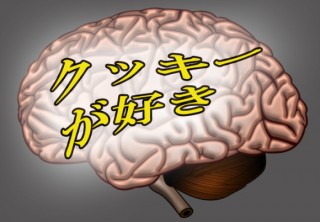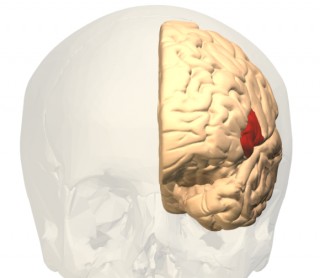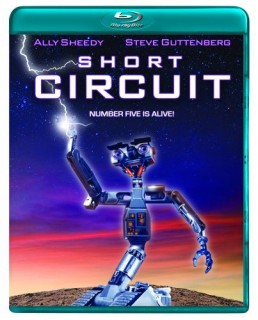▼ Researchers Use Uniformity Of Japanese Language To Read People’s Minds
- Category:Other

ROCKET NEWS
A research group from the Kyushu Institute of Technology have announced that they have successfully read certain words and letters from people’s minds without them saying anything.
■ Method
The study was carried out by a team led by Professor Toshimasa Yamazaki from the Systems Engineering Department of the Kyushu Institute of Technology. In it they gathered a few dozen men and women and analyzed their brainwaves when saying the Japanese words for the game rock (gu). paper (pa), scissors (choki).
They then asked the subjects to simply think about the word strongly and measured their brainwaves again. When comparing the two they found similar patterns both times. Although the words generated the same waves when spoken or thought, they were different for each person.
They also expanded the tests to include the Japanese words for summer (natsu), winter (fuyu), spring (haru), and autumn (aki) and from two of those words they could isolate the brainwave patterns for the Japanese letters ha, ru, na, and tsu with 80 to 90 percent accuracy.
■ How did they do it?
Professor Yamazaki and his group focus their study on the part of the brain known as Broca’s area, which is associated with human speech.
According to the professor, Broca’s area triggers a signal from the brain called a “readiness potential” than prepares the muscles needed to utter the word conjured in one’s mind. So, any time you think of a word your brain is already working to make your body say it, even if you don’t.
▼ Broca’s area (in red) is located right where I used to punch myself every time I lost at Street Fighter II, which probably explains my slurred speech.
This signal causes a slight disturbance in the person’s brainwaves which can detected by EEG. Since different sounds require different muscle combinations, their readiness potential would be unique as would the disturbance it caused to the brainwaves making their verbal thoughts possible to decipher.
■ Challenges
Although possible, this method is far from easy. Research into mind-reading words through brainwave analysis has been going on for decades, but is so complex that little progress has been made until now.
Part of the reason that Professor Yamazaki and his group has made such a breakthrough is because they’re Japanese.
One roadblock that researchers have met in the past was that they could successfully read vowel sounds from brainwaves but could not identify those associated with consonant sounds. The Japanese language has a distinct advantage in here because nearly every character has a vowel sound in it.
▼ One line of the Japanese syllabary, or the sound I make when my pizza has arrived.
In addition, the number of vowel sounds are very limited compared to other languages making it much easier to identify and catalog each element. English, on the other hand, with its plethora of voiceless consonant sounds and wide range of vowel sounds, would be vastly more difficult to read in people’s brainwaves.
That’s why Prof. Yamazaki is confident that Japan will lead the way in this type of mind-reading technology, and with more advancement the benefits would be huge.
■ Applications
If fully realized, this technology has the potential to be a great help people with speaking disabilities, and perhaps even patients locked in a coma or state of shock, to communicate. It can also be used to allow people to interact with each other in areas where sound doesn’t travel, such as the ocean or outer space.
Yamazaki told Nishi Nippon Shimbun how he would like to see it used: “Sci-Fi-like applications become possible such as controlling robots with our minds.”
▼ That would be the opposite of Johnny-5, the robot who moved Ally Sheedy and Steve Gutenberg with his beautiful mind.
The benefits to reading-minds certainly can bring about massive positive change to the world, but like any technology there is also a dark side. Even though it is in its early infancy, it has already proven effective at making the unbeatable rock-paper-scissors robot army even stronger than before…
- January 16, 2016
- Comment (0)
- Trackback(1995)
Comment(s) Write comment
Trackback (You need to login.)
You're so cute.
- Cheap Albion Online Gold
- February 3, 2016
I don't know what you are saying
- Cheap BNS Gold
- February 3, 2016
How come you are working here?
- Blade And Soul Gold
- February 3, 2016
I respect your work.
- Albion Online Gold
- February 3, 2016
You are looking sharp !
- Cheap MapleStory Mesos
- February 3, 2016
I'll fix it!
- Cheap Blade And Soul Gold
- February 3, 2016
Proud of you .
- Albion Online Power Leveling
- February 3, 2016
You fall for it every time.
- Blade & Soul Gold
- February 3, 2016
I made a fool of myself.
- Buy Blade And Soul Gold
- February 3, 2016
I do not have the slightest idea
- Cheap BNS Gold
- February 3, 2016
I was be there for you.
- Albion Online Power Leveling
- February 3, 2016
What if I had the guts to quit my job.
- Albion Online Power Leveling
- February 3, 2016
Im very pleased with your work.
- Cheap BNS Gold
- February 3, 2016
You started it !
- MapleStory Mesos
- February 3, 2016
I mean it!
- Buy Blade And Soul Gold
- February 3, 2016




